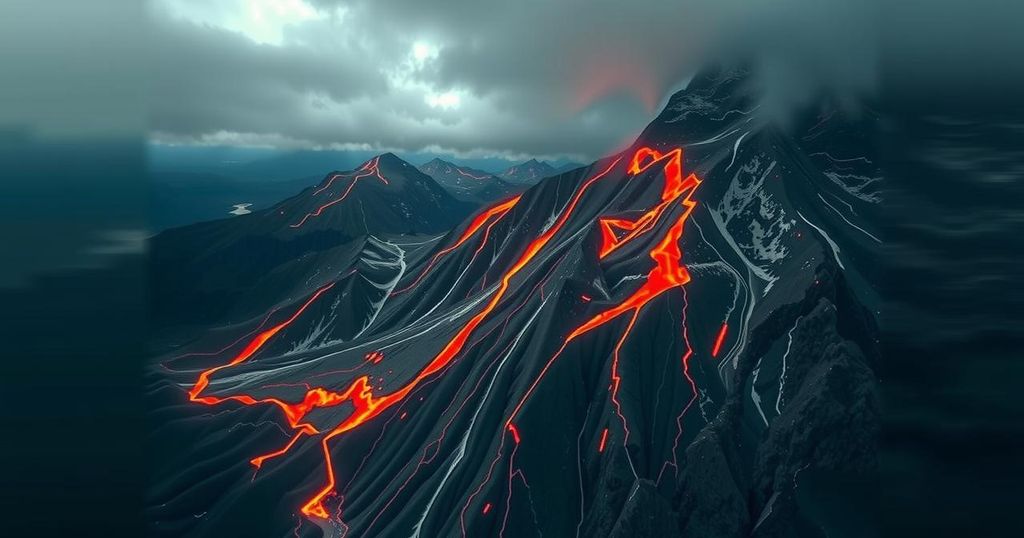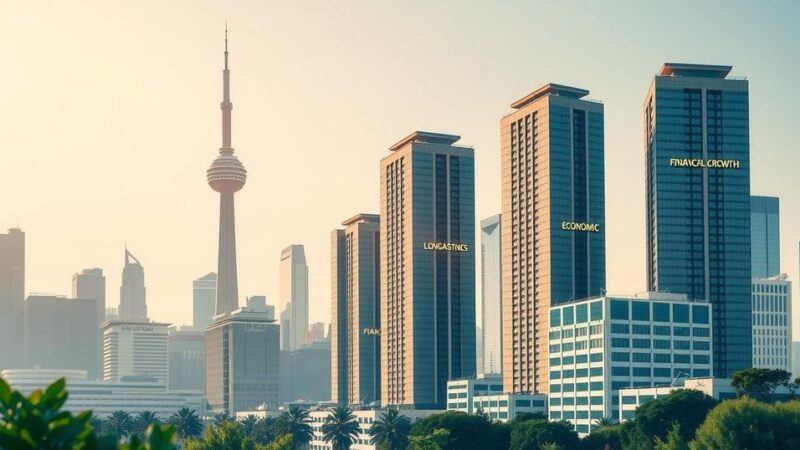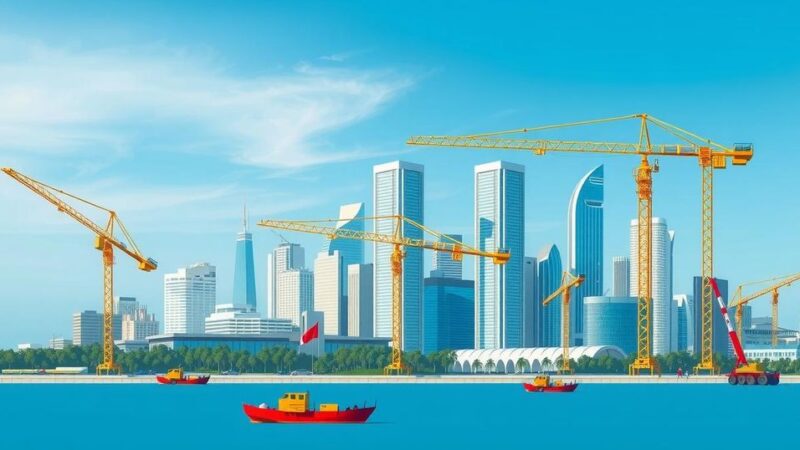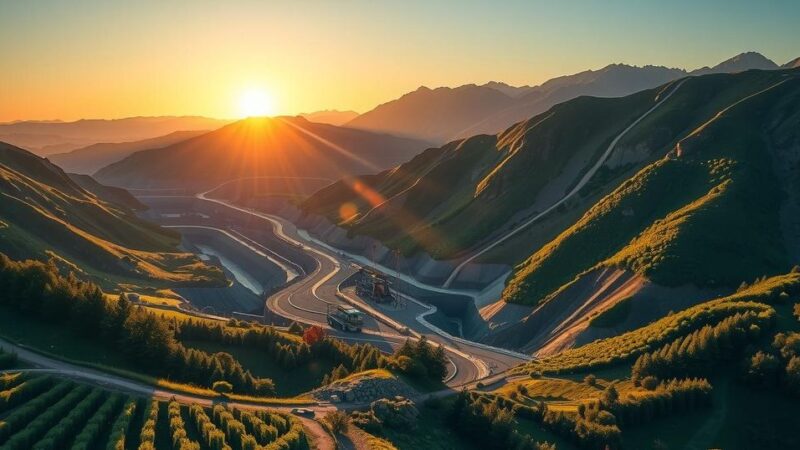A mountain collapse in the Democratic Republic of Congo uncovered significant copper deposits while prompting discussions about colonialism and resource exploitation. This event has elicited numerous reactions online, with calls for protecting the nation’s resources from foreign interests, highlighting the tensions between national pride and historical exploitation.
A significant geological event in the Democratic Republic of Congo (DRC) has disclosed vast copper reserves, igniting discussions regarding colonial exploitation of the nation’s rich resources. Footage of the mountain’s collapse in the mineral-rich Katanga region has garnered widespread attention on social media, prompting users to humorously propose that the DRC should safeguard its resources from foreign interests following this occurrence. Hundreds witnessed the event, with significant concern for safety as debris fell from the mountain’s slope. The DRC is endowed with abundant natural resources, among which copper is paramount. Located in the Central African Copperbelt, which contains some of the globe’s most substantial high-grade copper deposits, the Katanga region’s copper is characterized by its exceptional quality and relatively economical extraction processes. This unique positioning of the DRC in the global market enhances its competitiveness due to the rising demand for copper, particularly in sectors focusing on renewable energy and electric vehicles. As global industries increasingly rely on copper for various applications, the recent discovery of extensive reserves draws various public reactions online. “Hello continental Europe, UK, USA, China – keep your filthy hands away. This belongs to Congo people,” commented one social media user, reflecting a sentiment of national pride and protectionism. Another user remarked, “Congo needs to ban entry of Britain and other westerners in view of the mountain collapse revealing minerals to keep them safe.” Furthermore, speculation arose around potential unsafety concerns linked to mining practices, igniting discussions on the responsibility of foreign corporations in resource extraction. This incident serves as a poignant reminder of the historical complexities surrounding resource management in the DRC. While the mountain collapse unveiled significant copper reserves, it simultaneously rekindled dialogues on the legacy of colonialism and ongoing exploitation of the DRC’s resources. The discussions underscore the importance of safeguarding the nation’s assets and ensuring that its wealth is equitably utilized for the benefit of its citizens.
The Democratic Republic of Congo is recognized for its considerable natural resources, particularly copper, which is essential in various industries including technology and renewable energy. The country possesses some of the world’s richest copper deposits, primarily located in the Central African Copperbelt. This region’s mineral wealth has historically attracted foreign investment but also raises concerns regarding exploitation and the socio-economic implications for local communities. The recent collapse event has reignited interest in these issues, emphasizing the need for a balanced approach to resource management that prioritizes national interests.
In conclusion, the mountain collapse in the Democratic Republic of Congo not only revealed considerable copper reserves but also reignited critical discussions surrounding national sovereignty and the legacy of colonial exploitation of natural resources. The reactions on social media highlight an emerging awareness and desire among the public for the protection of the DRC’s resources, as well as a need for responsible practices in resource management. This event serves as a catalyst for ongoing dialogues regarding the equitable use of the DRC’s wealth for the benefit of its people.
Original Source: www.hindustantimes.com






